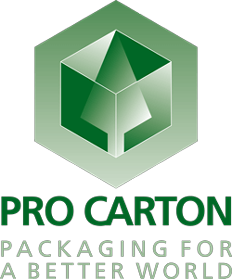Given the scale of the EU’s Packaging and Packaging Waste Regulation (PPWR) proposal, there is much uncertainty across the packaging world as industry figures try to untangle what it really means. The proposed regulation shows a preference for reusable packaging against recycled cardboard packaging. Not only is this the unilateral stance to take, but pushing forward with the PPWR in its current form could have far-reaching negative consequences.
The purpose of the PPWR is to reduce the impact of packaging and packaging waste on the environment and ensure that resources are kept within a circular economy. We are fully supporting the ambitious targets of the EU Greendeal. Pro Carton’s stance is that paper and cartonboard packaging is a true circular economy in action. Sustainably sourced, renewable, and recyclable, paper and cartonboard packaging have a high recycling rate of 82% at the end of their use. This is one of the highest amongst any other packaging material, such as glass, plastic, or metal.
The European cartonboard’s industry obtains the raw material from sustainably managed forests. More than 95% of the wood is sourced from EU forests, and thanks to the sustainable forestry that Pro Carton’s members promote, there is a healthy growth of forest land across the continent, with an increase of roughly 2% annually – the equivalent of adding 1,500 more football pitches each day.
The importance of European forests cannot be understated. The continent’s forests are vital for the preservation of an environment worth living in. Europe’s forestry industry absorbs about 20% of Europe’s greenhouse gas emissions. Therefore, the cartonboard industry makes a significant contribution to mitigating the negative effects of environmental damage.
Our value creation is made in Europe
The full lifecycle of our cartonboard is European through and through – the products developed by our members are largely made from European raw materials, with the packaging developed, manufactured and recycled in Europe.
Across the entire value chain, the cartonboard industry employs almost 650,000 people, responsible for generating sales of 180 billion euros every year. It is also beneficial that the European industry only requires short transport distances. Innovation is constantly sought out, and by investing in modern and environmentally friendly technologies, the industry has succeeded in reducing CO2 emissions, cradle-to-grave, by 24% between 2018 and 2021.
Consumers see used packaging as a valuable raw material for new packaging, so as a result, the industry has managed to collect and recycle more than 56 million tonnes of paper and cardboard last year.
An efficient system developed over decades
Depending on the product requirements, we produce the packaging from virgin fibre, or we use recycled fibres as the base material. While the production of virgin fibre cartonboard dominates in Scandinavia, many cartonboard mills in continental Europe have specialised in the recycling of collected recyclable materials. Here, too, a balanced and market-compliant system has developed.
There are established collection and recycling structures in Europe. The result of the recycling activity can be further sustainably improved if the recycling materials are collected separately from each other. At Pro Carton, we are driving harmonized separate collection of fibre packaging materials and a binding EU collection rate of 90% for fibre-based packaging. In doing so, we are setting the bar even higher for our industry, and others involved with additional packaging materials, creating the basis for achieving the ambitious goals of the EU Green Deal.
Complementary use of single-use and reusable systems
If the original version of the PPWR is implemented, the highly efficient system that the cartonboard industry has built over the years is in serious jeopardy. It has been proven that reusable systems have a detrimental effect in some applications.
For example, a recent report by McKinsey entitled ‘The potential impact of reusable packaging’ investigated fast food restaurants in Belgium which reflected that CO2 emissions are 2.8 times higher than those of cardboard packaging that are being successfully used currently. Furthermore, freshwater consumption is 3–4 times higher. The total cost of these applications would be 80–130% higher. This is mainly due to additional transport and cleaning requirements.
Internal FEFCO assessments, based on market and industry data, found that PPWR, if implemented, would have a major impact on the EU market. For ecommerce alone, 700 million new plastic boxes would have to be produced and placed on the EU market in the first year. To meet the 2040 target, this number would reach 3.5 billion new plastic boxes, purely for ecommerce! The statement also highlighted that the plastics industry would need to produce 8.1 billion plastic crates under the new proposed rules, putting an additional 12 million tonnes of plastic on the market. These figures demonstrate the importance of the current decision making of the PPWR. Highest priority for our environment and our society.
There will be solutions where re-usable packaging will have a better environmental result and vice-versa, depending on the respective consumer requirements and circumstances. The business owners need to be put in a position to decide for the best solution and this solution needs to withstand environmental profile checks.
Therefore, Pro Carton is strongly in favour of leaving the packaging decisions to the entrepreneurs – decisions backed by scientific studies. With existing regulations and directives in place that have already set the cartonboard industry on the right path, further politically motivated top-down decisions and blanket guidelines are counterproductive. A complementary application of different packaging solutions leads to the best results for our environment.



